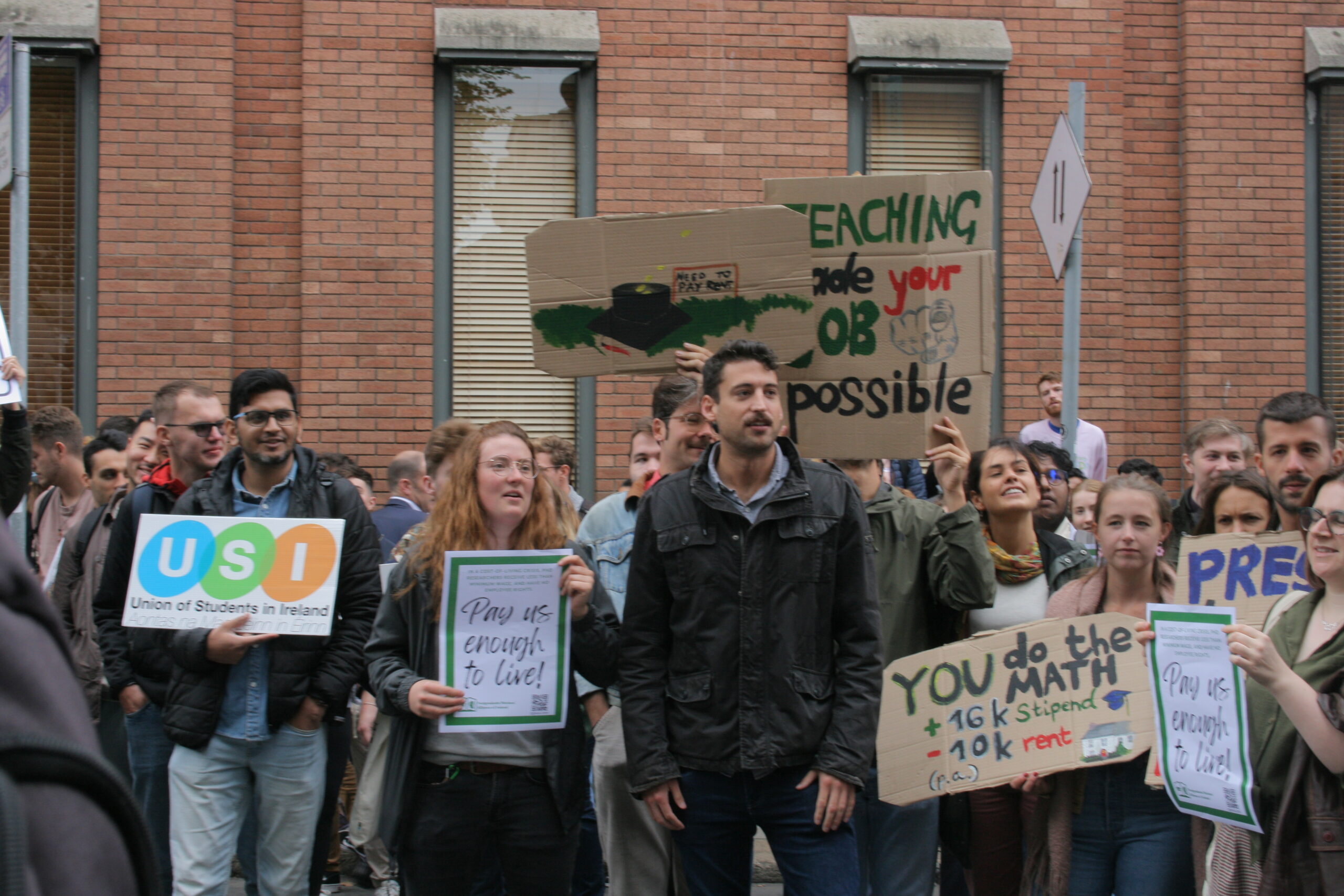The Postgraduate Workers’ Organisation (PWO) has called on Science Foundation Ireland (SFI) Director General Professor Philip Nolan to cover fees and payments associated with non-EU student visas, including the €300 fee to renew an Irish Residency Permit (IRP) card and the cost of purchasing private health insurance, which the letter claims can cost “in excess of €600 a year”.
The official letter sent by the PWO addressed to Professor Nolan states that “non-EU postgraduate researchers face an inordinately large financial burden on an already small budget” as a result of the costs associated with visas and immigration and that “in addition to the administrative burden that this places on these researchers, this brings non-EU researchers almost €1000 further beneath an already below-minimum wage salary”.
The letter continues: “During our current cost of living crisis, this is pushing non-EU researchers to breaking point, leaving many living in precarious or unsafe housing or relying on external support locally at their university for basic living needs. It is further tarnishing Ireland’s reputation as a great place to do research and damaging our position on the world stage”.
“Despite these costs, the vast majority of research centres and research training centres within the SFI do not classify IRP fees or insurance as an “eligible cost” for expenses claims, despite this being standard practice across industry.”
The letter also states that most of the research centres in receipt of SFI funding “are underspending the budget being allocated to them by the SFI and cannot fill many of the PhD positions they advertise” and that as a result, there are “ample funds” to put towards this.
“Furthermore, many researchers have leftover budgets for research, training or travel costs which they could use towards this but are prevented from doing so by SFI or their local centre’s rules.”
The letter finishes with a demand that SFI “unequivocally advise all SFI research centres and research training centres to consider IRP fees and insurance for non-EU researchers an eligible expense without delay” as many non-EU postgraduate researchers are “struggling now” and do not have time to wait for the outcomes of the ongoing review of PhD supports in Ireland.
In a press release issued with the letter, Shaakya Anand-Vembar, a member of the TCD PWO branch, said: “Given the many (often humiliating) logistical burdens non-EU researchers face when it comes to simply existing in Ireland legally, the very least funding bodies could do to help us in this cost of living crisis (and something that, unlike visa processes, SFI can have a tangible impact on,) is to cover the cost of our residence permit renewal fees and health insurance”.
“The current system is not only elitist (favoring financially well-off non-EU researchers), but is also pushing many of us to have to extend our PhDs due to part-time jobs taking up a significant portion of the time and energy that we would like to devote to our research instead”, she continued.
“I am currently in my final year, and am balancing two jobs on top of my PhD just so I can guarantee that I’ll have a meagre amount of savings by the time I submit – even a little bit of assistance with my visa and insurance fees would go a long way to alleviate the constant stress of these looming large costs.”
In the same press release, Bana Abu Zuluf, a member of the Maynooth University (MU) Postgraduate Workers Alliance (PGWA) branch, said: “Non EU PhDs are neglected when we talk about the absurd amount of expenses we are forced to take on to continue research on a below minimum wage stipend. That shouldn’t be the case when we constitute a large number of postgrads in Irish Universities.”
“We are hit the hardest by the cost of living crisis and have yet to pay an annual cost of €1000+ for private medical insurance and to renew our IRP. You can’t complain about PhDs quitting when this is the condition you put them in.”
Jack McNicholl, a member of the University College Dublin (UCD) PGWA branch, added: “In a country which is already punitively expensive to reside in, it’s so unjust for foreign postgrads to pay large added costs on top of that just for coming to work here and add to our universities.”







